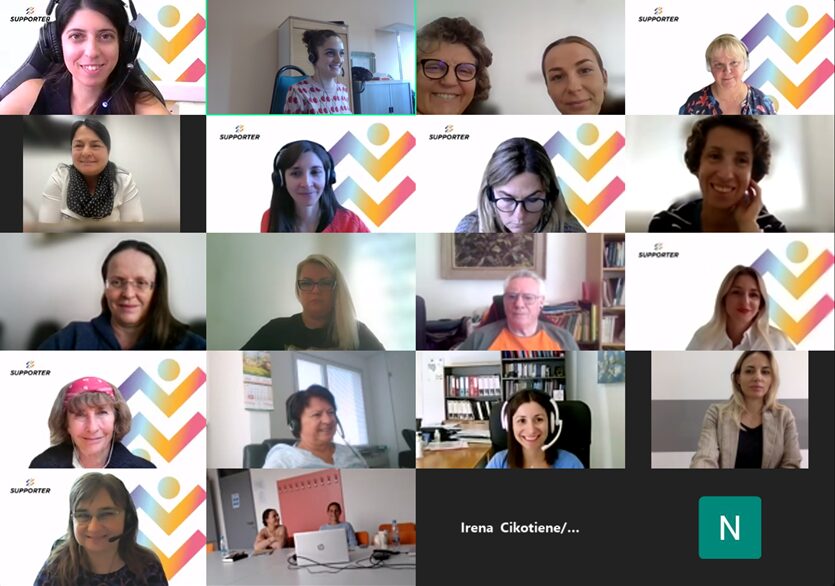Promoting gender equality in sports education: lessons from the Mutual Learning Workshop
On 24 September 2024, SUPPORTER’s 5th online Mutual Learning Workshop highlighted the International Olympic Committee (IOC) 2024 objectives and guidelines for gender equality in sports. During this session, SUPPORTERs reflected on inspiring practices and identified ways to integrate these best practices into their institutions.
Reframing the narrative of gender portrayal in media
One of the main discussions of the workshop was the portrayal of women in of sportswomen in media?. While the IOC guidelines aimed to create a more gender-equal narrative in sports communication, challenges persist. Stereotypes and reduced gender identities still overshadow athletes' accomplishments. The barriers to fair portrayal remain high, from underrepresentation to sexist language. Addressing these biases involves equal representation and ensuring that women are portrayed for their achievements, not solely defined by their gender.
Zoi Tatsioka, a researcher at SEERC, highlighted an example: a newspaper referring to a female bronze medalist as the "wife of a Bears' linesman" instead of recognising her achievement. This type of narrative diminishes female athletes' identities and reinforces the need to change the conversation and defy negative stereotypes and gender norms.
Intersectionality in sports
The concept of intersectionality was another primary focus. Gender is just one of the many aspects of athletes' identities. Race, class, ethnicity, religion, and sexuality intersect to shape their experiences in sports. Balancing the portrayal of these athletes means recognising and reflecting this diversity. The workshop highlighted that institutions and media must consider all facets of identity to ensure a more comprehensive and fair representation of athletes.
The role of male allies
A powerful example of a male ally discussed was tennis player Andy Murray. Throughout his career, Murray became a vocal advocate for gender equality in sports. Murray proves that male athletes can support and promote women in sports by appointing Amélie Mauresmo as his coach and speaking out against the criticism she faced as a woman in a traditionally male-dominated role. The workshop highlighted the need for more male allies like Murray to challenge stereotypes and promote gender equality across all levels of sports.
Gender Balance in leadership and coaching
The underrepresentation of women in leadership and coaching roles remains a critical issue. Recruitment, development, and retention of female coaches face multiple challenges, from gender stereotypes to unequal pay and lack of networking opportunities. The workshop highlighted initiatives like the IOC's Women in Sport High-Performance Pathway (WISH) Programme, which provides leadership development opportunities for women coaches, aiming to "fix the system, not the women."
An example highlighted during the session was the IOC's commitment to promoting women in governance and decision-making, showing progress with 41% of women in leadership positions at Paris 2024 Figure 3: The IOC example: women in IOC decision-making bodies
Fixing the system : A Call to Action
The call to action of the workshop was evident: fixing the portrayal of women in sports and fostering gender equality requires systemic change. Academia, media, and sports higher education institutions must collaborate to challenge gender stereotypes, promote balanced coverage, reframe the narrative, support diversity, and ensure all voices are heard in the media and leadership positions.

